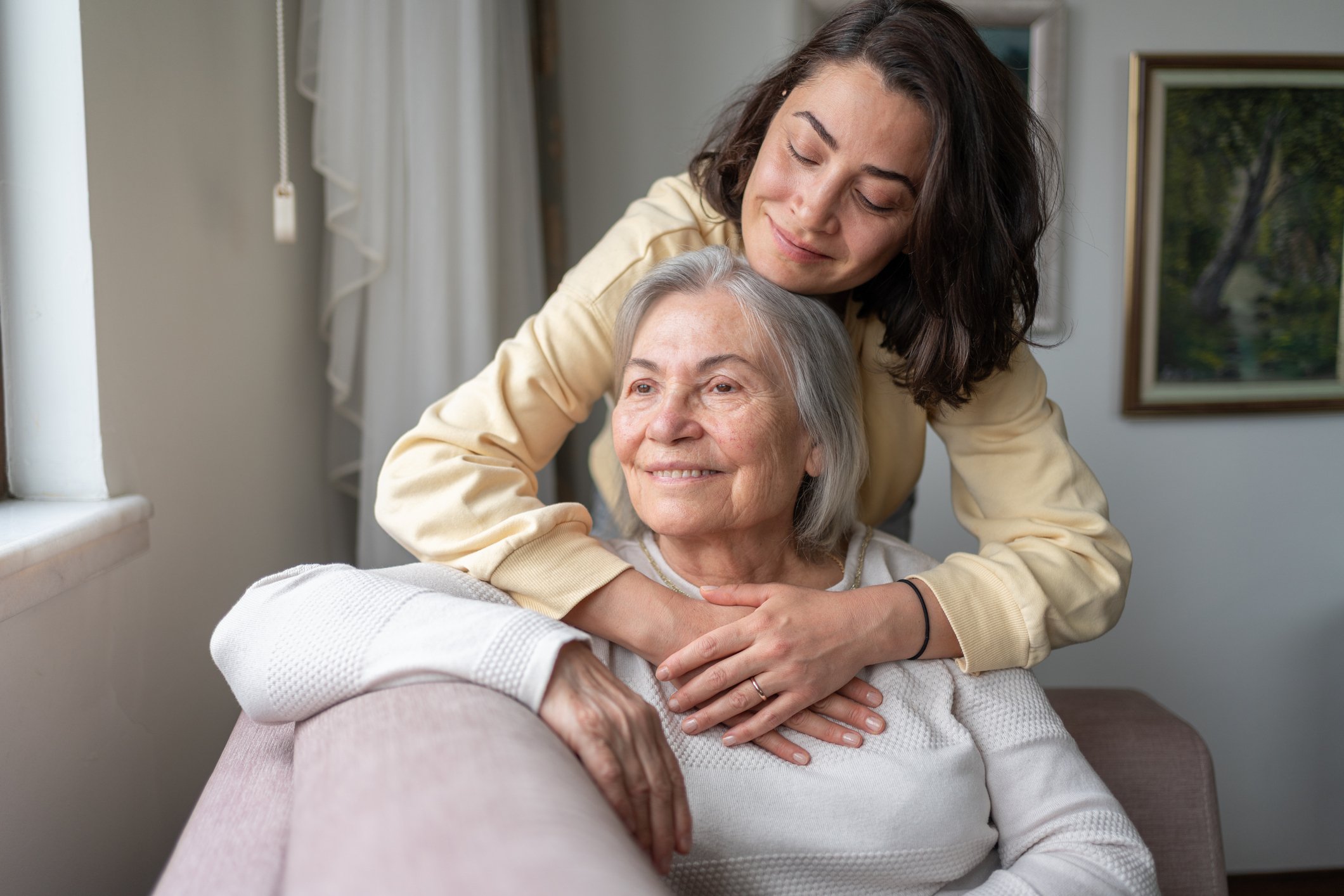Caring for a loved one? Don’t forget to care for yourself.
November is National Caregiving Month, a time to honor the millions of people who provide care for loved ones with chronic illnesses, disabilities, or age-related needs. Whether it’s helping a parent manage medications, supporting a friend through recovery, or caring for a child with special needs, the role as a caregiver is vital—and often invisible.
And while caregiving is an act of love, it can also be physically and emotionally exhausting. As Gail Sheehy says in Passages in Caregiving, “The constant vigilance, the emotional rollercoaster, the physical demands—it’s no wonder caregivers are often running on empty.”
That’s why self-care is so important. Caring for yourself is part of caring for others. Or, as mental health advocate Katie Reed says, “Self-care is giving the world the best of you, instead of what’s left of you.”
What does a caregiver do?
Caregivers wear many hats. They may assist with daily activities like bathing, dressing, and eating. They often manage medications, coordinate doctor visits, and handle finances. Emotional support is another key part of the job—being a steady presence during difficult times. For example, here are five common responsibilities of caregivers:
- Personal care: Helping with hygiene, mobility, and nutrition
- Medical management: Administering medications and attending appointments
- Household tasks: Cooking, cleaning, and organizing
- Emotional support: Providing companionship and reassurance
- Advocacy: Navigating healthcare systems and speaking up for the care recipient’s needs
A caregiver’s toolkit: Support for a role that demands everything from you
Being a good caregiver isn’t just about what you do—it’s about how you prepare. A well-stocked caregiver toolkit can make all the difference. Here are some essentials:
- Health plan resources: Many health plans offer care management (or coordination) services. Care managers can help in a number of ways, including connecting patients to the right providers, specialists, and support so that care is seamless across different settings. They can also help with medication management, educating the patient, helping find social support and resources, and coaching members to make healthy choices.
- Organizational tools: Use calendars, medication trackers, and digital apps to stay on top of appointments and routines.
- Support networks: Join caregiver support groups online or in your community. Sharing experiences can reduce isolation and offer practical advice.
- Emergency contacts and documents: Keep medical records, insurance info, and legal documents easily accessible.
Common signs of caregiver burnout
Caregiver burnout is real—and common. It’s a state of physical, emotional, and mental exhaustion that can happen when you’ve been caring for someone over a long period without adequate support. Common signs include:
- Feeling overwhelmed or constantly worried
- Fatigue that doesn’t improve with rest
- Changes in sleep or appetite
- Withdrawal from friends and activities
- Irritability or mood swings
If you recognize these symptoms, it’s time to take a step back and reassess your own needs.
How to care for yourself while caring for others
Self-care isn’t selfish—it’s survival. Here are some ways to protect your well-being:
- Set boundaries: Know your limits and communicate them clearly. It’s okay to say no.
- Ask for help: Delegate tasks to family members or hire professional help when possible.
- Take breaks: Even short moments of rest can recharge your energy. Use respite care services if available.
- Stay connected: Maintain relationships outside of your caregiving role. Social support is crucial.
- Prioritize your health: You can’t be strong if you’re running on empty. Remember to eat well, exercise, and keep up with your own medical appointments.
How to be a good caregiver
Being a good caregiver doesn’t mean being perfect. It means being present, informed, and compassionate. Habits of a successful caregiver include:
- Active listening: Understand your loved one’s needs and preferences.
- Stay educated: Learn about their condition and treatment options.
- Practice patience: Progress may be slow, and setbacks are normal.
- Celebrate small wins: A good day, a smile, a shared laugh—these moments matter. Take the time to be present for them.
Professional resources and support are available
Caregiving can feel isolated, but you’re not alone. Here are resources, communities, and professionals ready to support you.
- AARP Caregiving Resource Center
Offers guides, checklists, and tools for family caregivers, including legal and financial advice. org/caregiving - Family Caregiver Alliance (FCA)
Provides education, advocacy, and support for caregivers, including webinars and state-by-state resources. caregiver.org - The National Alliance for Caregiving (NAC)
Focuses on research, policy, and public awareness to improve caregiver support nationwide. caregiving.org - Rosalynn Carter Institute for Caregivers (RCI)
Offers evidence-based programs and advocacy for caregiver health and resilience.
rosalynncarter.org
Sources: Caregiver.org, aarp.org/caregiving, alz.org
